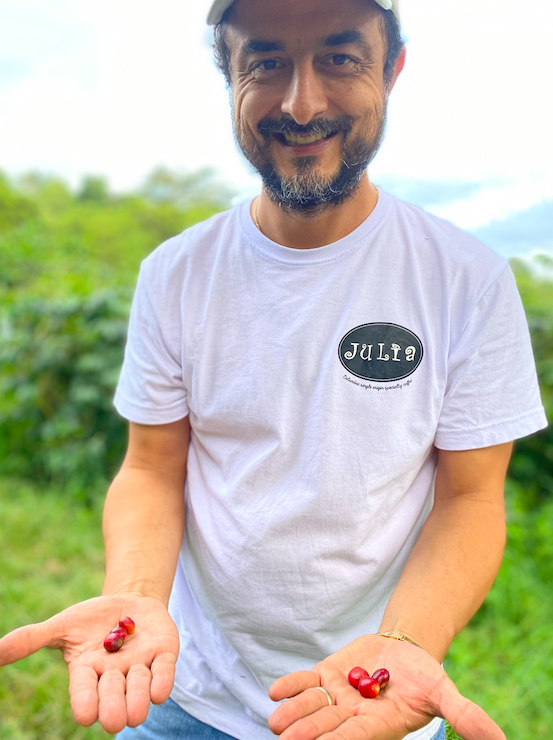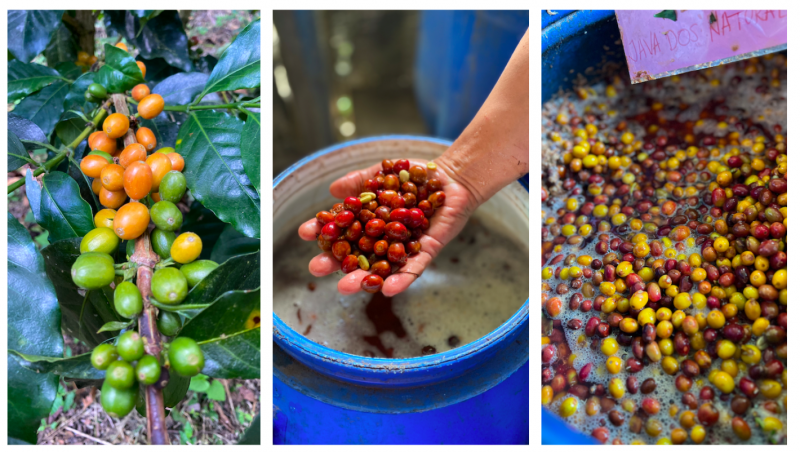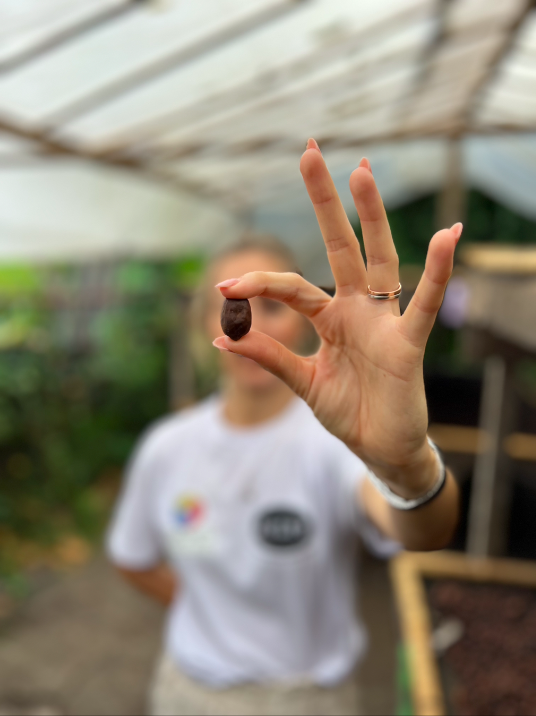This is a part of a series written by Jose and Nicole Fernandes of Sabores Flavours of Colombia Coffee, originally published in Issue 46 of The Coffee Magazine. They asked four incredible coffee producers the same set of questions and the variety of answers is truly enlightening.

Nicolás Ocampo
Over the last decade, Nicolas has transformed La Julia farm in Trujillo, embracing exotic varietals as well as natural and honey processing. His commitment to maintaining quality while being respectful with the environment and adapting to market trends has gained attention not only in South Africa but also in the Middle East.
1. What are the primary challenges faced by specialty coffee producers in Colombia?
I believe that the main challenges in specialty coffee growing are skilled farm labour, and climate variations. We all, no matter where we live and work, see these climate variations year after year. In coffee growing it means low yields resulting from weather extreme variations and heavy and constant rains affect our crops.
Labor issues are mostly due to the lack of well-trained staff and the scarcity of them. The quality of the labour is not proportional to the investment we put into the process, always respecting all the labour laws and policies, and still getting essential tasks such as handpicking and processing quality-controlled performed poorly.
2. What changes have you made in recent years to stay current in coffee production and maintain crop exports?
In our case, we stick to more traditional methods of processing. La Julia hasn’t started co-fermenting, nor using yeasts or flavour enhancers. We keep intact the promise we make to our clients of good harvesting and processing methods while respecting the environment. To keep ourselves relevant, we firstly strive to maintain our quality control so we spend the necessary time training our seasonal staff at the farms ensuring our cup profiles are not affected by an error in the production chain that could occur. We have also seen a tendency this last year to reduce fermentation times, looking for “less aggressive” profiles. Those are world tendencies; it usually depends on the client, and each continent behaves differently in terms of preferences. We keep implementing changes and, to do so, we must carefully listen to the client’s feedback on specialty coffee lots, as the traditionally washed estate coffees keep being more than 90% of our production.

3. Where do you see Colombian specialty coffee production heading in the medium-term future?
Specialty coffees from Colombia are showcased at the international stage nowadays throughout the world, and I do believe there is space for this market to keep on growing. I would guess that in future, the auction system will start to be more widely used when deciding to buy unique lots, either at a public or a private auction, just like Panamanians do, to reward great lots with better prices. I don’t see a lot of extra growth for the co-fermented coffees, although they do have their share of the market and they’ve positioned themselves internationally among the specialty coffees.
4. If given the opportunity, what aspects of the global trade and marketing of Colombian specialty coffees would you alter?
I don’t think much will change in trading; however, there might be more one-on-one types of trading where the farmer gets to meet the roaster either directly or via a direct importer mediating the communication. I would like to learn as well more about how to get my coffees on auctions; I find them interesting. I would perhaps change the way exporting works, as there are plenty of barriers, even through the Colombian Coffee Federation.
